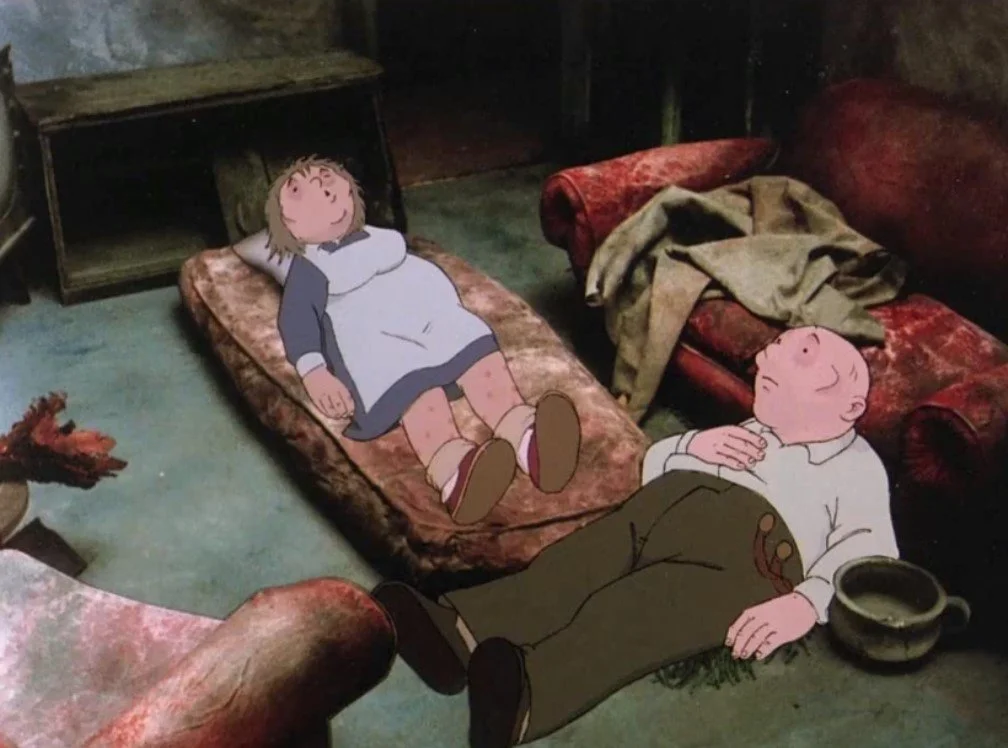
Reviews of horror media, written by our editors.
Judgments by Category
An essay in which we ramble a bit and try to work out our own thoughts about a peculiar and often disorienting subgenre, lyric horror, before we look more closely at specific films in our upcoming Dissections series. Think of this Judgment as a first draft of our thoughts on lyric horror.
(In fact, think of this kind of essay as a new kind of Judgment article. The Pre-Dissection Thinky-Definey Essay, in which we think our half-informed thoughts and define some of the terms and ideas we’ll explore in the series.)
Directors Aaron Moorhead and Justin Benson’s 2017 film The Endless conveys its fairly complicated concept in a way that makes enough sense to feel believable, but it also withholds enough explanation to make that same concept feel incomprehensible on a cosmic scale. This partial sequel to 2012’s Resolution manages to do all of that with a very human-level story about the relationship between two brothers as they return to the cult that raised them after their mother’s death and gradually resolve their conflicting memories.
Eric gives supplementary notes updating Susan Sontag's "Notes on Camp," bringing a modern, horrific eyeball to the classic essay.
Since his horror debut with 2017’s Get Out, Jordan Peele has proven himself again and again to be an incredibly gifted writer and director, one who’s brimming with love and knowledge of the horror genre. His third film, Nope, is his most ambitious and complex outing to date. That has apparently confused some parts of the internet. We’re here to tell you to ignore those wrong people and listen to us: Nope is downright masterful, and every horror fan should see it.
Watership Down has a reputation as a devastating experience for a kid’s movie. Boomers took their Xer kids to see it unaware that it featured the massacre of so many cute cartoon bunnies. They should’ve watched the trailer… I only saw it as an adult, but it would’ve been perfect for a kid like me.
Based on Raymond Briggs’ 1982 comic book of the same name, When the Wind Blows tells the bleak and unrelentingly tense story of a doddering elderly couple who must survive a nuclear bomb dropped in rural England. The film is heavy-handed in some of its imagery and especially its music—arranged by Roger Waters of Pink Floyd—but in spite of these shortcomings, it manages to strike all the right emotional chords and succeeds surprisingly well.
The Batman embraces the comic book legacy of horror and mystery underpinning the World’s Greatest Detective, the Dark Knight, the Defender of Gotham. And it works, producing one of the hero’s best onscreen iterations and one of DC’s best superhero movies to date.
Happy V-Day! Here are a few love-themed horror movies about falling in and out of love, about spurned and unrequited lovers, and about one man, “a legend they say, who hates Valentine’s Day.” These aren’t ranked or rated. They’re just movies we think are worth a couple hours of your time.
Ultimately, meta-ness may be the defining element of the Scream franchise. With Scream (5), Bettinelli-Olpin and Gillett have managed to build a requel/soft reboot around the original’s meta-skeleton that, in our estimation, actually lives up to Wes Craven’s legacy.
Satanic Panic isn’t getting at anything new, and it’s not what we’d call especially artful. But we would call it a playfully gross film that says what’s been said before with great gory gusto.
Gaia is a blend of ecological and folk horror, with a dose of the cosmic and apocalyptic thrown in for flavor. Screenwriter Tertius Kapp offers up a story about the fury and unknowability of nature, one that feels both contemporary and ancient at the same time. Though we didn’t care for the sometimes stock quality of the special effects, Gaia is underpinned by a great script, on-point performances, unsettling sound and cinematography, and a timely, well-executed concept.
For those who appreciate quiet storytelling, twisted fables, and atmospheric tension, The Djinn offers a story of a grieving boy struggling, and failing, to accept his difference in a world that’s crueler than his father would have him believe.
Though a bit longer than necessary and a bit unnuanced in its approach to gender and class, in the end, for fans of anti-heroes, supernatural horror, and tales of ghosts and possession, Neha’s Mother offers a compelling, character-focused, and cinematic read.














